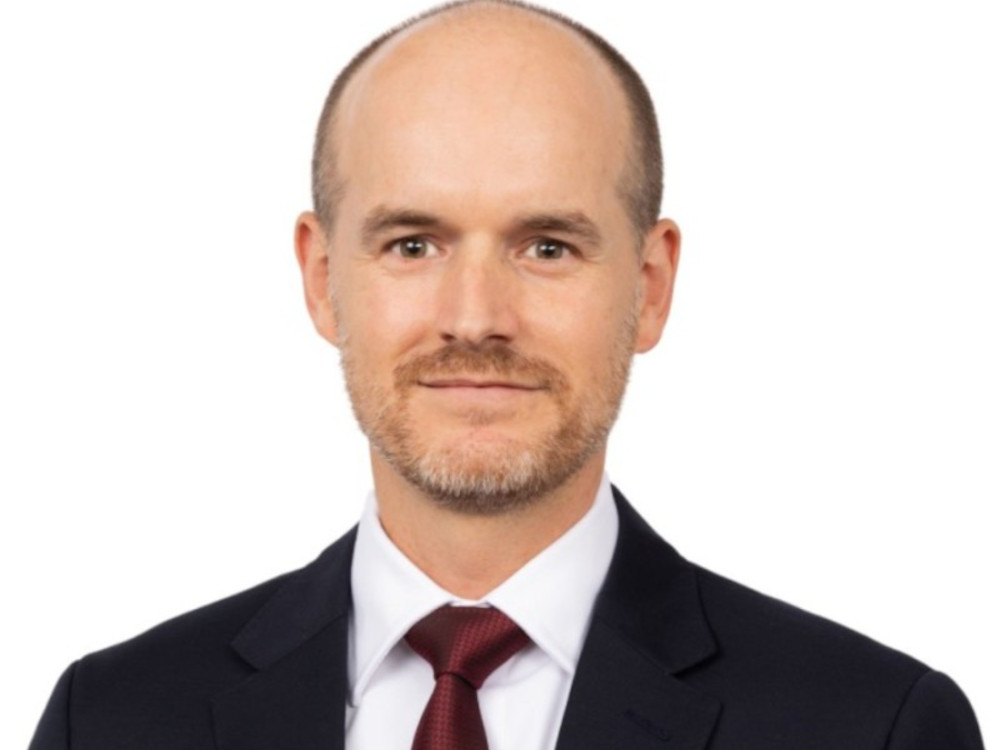We like to think misinformation is a fringe problem—Flat Earthers, fake news, conspiracy theorists yelling on social media. But if you manage wealth for families, it pays—literally—to appreciate just how easily a smart, well-educated, high-net-worth individual can make bad decisions based on bad information.

I recently had the chance to sit down with Dr. Matthew Facciani, social scientist at the University of Notre Dame and author of Misguided: Where Misinformation Comes From and What to Do About It. Matthew studies a problem we all think we’re immune to but aren’t: believing things that simply aren’t true.
Old problem, new tricks
Fake news isn’t new. In Misguided, Matthew talks about a story from the 1800s when a Scotsman named Gregor MacGregor convinced people to invest in a fake country called Poyais. Adjusted for inflation, he stole more than a billion dollars from investors. More recently, false headlines have wiped billions off the markets in a single trading day, like the 2021 Litecoin hoax claiming Walmart would accept crypto payments.
Technology has simply poured jet fuel on an old fire. Social media algorithms feed our biases, pump up outrage and bury balanced reporting under clickbait and conspiracy-bait. As if that weren’t enough, artificial intelligence can now generate an endless supply of human-sounding nonsense faster than any editor can fact-check.
Identity rules the mind
What really stuck with me from my chat with Matthew is this: Facts rarely change minds when someone’s identity is at stake. People don’t cling to wrong ideas because they’re stupid; they cling to them because the idea fits who they think they are.
Want proof? In finance, you’ve seen it. The client who always wants to be “contrarian,” the uncle with the “hot tip,” or the investor who dismisses well-built diversification because they “trust their gut.” Often, they’re not looking for truth—they’re looking for confirmation that they’re special, right, or more in control than the rest of us.
Financial echo chambers
Social media amplifies this echo chamber effect. One click on a sketchy stock tip and the algorithm serves up 20 more. A casual look at an influencer hyping crypto and suddenly your feed becomes a 24/7 pump-and-dump carnival.
Good journalism—the kind that says “slow down, get context, check sources”—struggles to get clicks compared to adrenaline-spiking headlines or get-rich-quick fantasies. If you manage multigenerational wealth, this should keep you up at night. Think back to the GameStop “meme stock” mania that started four years ago. It wasn’t driven by rational investing but by identity—us versus them, little guy versus Wall Street. And emotion—always emotion—overrides discipline.
Even for families who don’t dabble in meme stocks, misinformation can nudge them toward timing markets, doubting sound plans or overreacting to noise. Fear and greed never sleep, but misinformation feeds them steroids.
So, what can we do about misinformation?
Matthew’s book outlines a few evidence-based tools that stuck with me.
- First, teach media literacy. Encourage clients (and maybe remind ourselves) to pause before sharing or acting on a headline. A quick source check can save millions in rash decisions.
- Second, the so-called “Five R’s” for hard conversations: respect, relate, reframe, revise, repeat. You can’t browbeat someone out of a bad idea. Connect first, listen for the identity underneath, then gently reframe. And don’t expect one conversation to do it—this takes time and trust.
- Finally, help clients stay grounded. At our firm, we say it daily: Emotion undermines wealth. Misinformation is emotion’s favourite weapon. The more we can remove unnecessary noise and anchor decision-making to evidence and process, the better off our families are.
Expand your feed, strengthen your filter
Family wealth advisors also need to recognize how our own information diet affects decision-making. Most of us unconsciously curate our lives to avoid discomfort. We follow people who think like us. We read sources that confirm what we already believe. We “hide” that one relative who posts conspiracy theories. And who can blame us?
But if you only see the world through the lens of your own beliefs, you’re more vulnerable, not less. You’re not filtering out misinformation; you’re training the algorithm to serve you more of it, tailored to your taste.
Matthew Facciani talked about this, too. Social media platforms are built on engagement. The more you react to something—even with outrage—the more you’ll see of it. That’s how echo chambers form: not from ideology, but from interaction.
The fix? Diversify. Not just your portfolio, but your perspectives.
Make a point of clicking on credible sources you wouldn’t normally engage with. Follow a few people you disagree with but who argue in good faith. Engage respectfully, not just reactively. It’s a small act, but it helps rebalance your feed—and your brain.
How do we make better decisions? One underrated answer: give yourself better inputs. Curiosity is a skill. So is restraint. Both get sharper when exposed to unfamiliar viewpoints.
It’s the same reason we diversify client portfolios—not because we love every sector, but because no one knows what’s coming. The same logic applies to ideas. You don’t have to agree with every voice you hear, but if you only hear one, you’ve already lost the plot.
Staying rational is a team sport
The real threat isn’t the crazy story someone’s cousin posts on Facebook. It’s how subtly misinformation shapes the market mood and tempts clients to override sound strategies. This risk is invisible on a balance sheet, but painfully visible when wealth plans go off the rails.
At the end of the day, advisors are in the trust business. Guarding that trust means being vigilant not just against fraud or shady schemes, but also against the everyday misinformation that seeps into good people’s thinking.
Colin White is CEO and Portfolio Manager at Verecan Capital Management Inc., a portfolio manager registered in all provinces in Canada apart from Manitoba. You can listen to Colin in conversation with Matthew Facciani on a recent episode of the Barenaked Money podcast.
The Canadian Family Offices newsletter comes out on Sundays and Wednesdays. If you are interested in stories about Canadian enterprising families, family offices and the professionals who work with them, but like your content aggregated, you can sign up for our free newsletter here.
Please visit here to see information about our standards of journalistic excellence.




